I asked a group of well-known thought leaders to weigh in regarding what indie authors could do to improve the self-publishing industry. The question I posed was, “What can self-published authors do as individuals that will ultimately improve the process or reputation of the industry in a way that benefits us all? Specifically, what skill or action can we acquire or do – aside from honing our writing skills – that will help enhance this business for everyone?” I received some great feedback, as you will see. Read on!
 Kimberley Grabas, Your Writer Platform:
Kimberley Grabas, Your Writer Platform:
As the self-publishing industry changes and adapts to new technologies, insights and interests, so too must the 21st century author. The good ol’ days of publishing no longer exist – if they ever did – and authors are in a unique position to transform themselves from the tortured, lonely artist to a confident authourpreneur with a few simple steps:
1. Accept responsibility: the success or failure of your writing career is ultimately in your hands. No other agency, group or publisher has as much investment in your work as you do, so take control. Invest in yourself and your business and take the time to learn what’s required to get your ‘start-up’ off the ground. The barriers to entry have come down, and your career as an author is no longer a lottery. Grab the opportunity with both hands.
2. Mindset matters: for some authors, the learning curve will be pretty steep. Websites, social media, marketing strategy and platform building all require a certain level of skill and time to master, and at the expense of already limited writing time. But the most important thing to remember is that these ‘tools’ allow you to connect with your audience. If used well, they can amplify your reach and open up new avenues to your readers. Don’t view them as a chore! Your readers will know. These tools can facilitate interactions, but it’s not what makes that interaction interesting, rewarding or engaging. That’s up to you. So change your mindset, embrace the tools, then find and hold a connection with your audience.
3. Focus on discoverability and meaningful connections, not selling: your writing career is not a get-rich-quick-scheme. Get prepared to be in it for the long haul. Focus on building meaningful connections with your readers and not on immediate sales. True, we all need to eat, but every business requires a solid foundation and framework first, before it can grow. The quantity of your subscribers, followers and fans is not nearly as important as the quality, so work hard to establish rapport with your readers, your peers, and other industry professionals. Get noticed for the right reasons and the sales will come.
 Joel Friedlander, The Book Designer:
Joel Friedlander, The Book Designer:
The best thing a new self-publisher can do for themselves is to learn about the book publishing business. Understanding how books are planned, produced, and distributed is key to producing your own successful books. Knowing the players, the conventions of book publishing, and the expectations that others have of publishers – people like bookstore buyers, book distributors, book reviewers, and others – will go a long way toward helping an author make the transition to being an effective book publisher.
Author Toby Neal:
Improving the industry is a tall order. Most of us are just trying to navigate the rapids of change and make a living! That said, for the book industry to survive and those of us who are “content producers” to thrive, the principles I shared in my platform-building minibook hold true, with an addition. Here they are:
1. Top Quality. Everything we put out should be equal to or better than what traditional publishing is doing.
2. Add Value: Look for ways to do things better and surprise the reader with more than they expect.
3. PIF: Pay It Forward. We indies prosper by gathering into tribes and supporting each other.
4. Innovate. We need to be on the forefront of trying new things, always pushing it out there to capture readers’ imaginations in new ways. I did this in my latest book, Unsound, by embedding a photo gallery and link to actual gorgeous sites in the book. Yes, it was tons of extra work and there were tech glitches to figure out, but keeping readers’ attention in the clamoring marketplace requires innovation.
 Shannon O’Neill, Duolit:
Shannon O’Neill, Duolit:
The absolute most important thing an author can do is to create a marketing plan. Every good business has a plan for how to make sales – Who are you selling to? Where can you find them? What’s unique about your product? How does it compare with other products? Why should someone buy it?
Authors should familiarize themselves with basic marketing principles and start formulating a strategy. It won’t be perfect at first, but you will be able to refine it over time and see your sales grow as a result.
There’s just no point in pouring so much into writing a book, publishing it, and not having a plan to get it to your readers. That’s like building a boat, setting sail, and not having a map to find your destination.
It’s not that difficult to do! Don’t psych yourself out thinking it’s an impossible task. Anyone can, and as an author, you are the *best* possible promoter of your book because no one is as passionate about it as you are! Turn your passion into promotion and you’ll succeed.
As indies, we need to step up our game in the marketing department if we want people to see the value in what we do. It will improve our reputation and lead to more individual success.
…and my humble opinion:
I believe if we approach writing and book sales as consummate professionals and view self-publishing as our business from the moment we begin, we’ll set ourselves up for better success over the long haul and help enhance the reputation of the industry overall.
One way to do that is to take emotion, hyper-sensitivity, and negativity off the table, or at lease keep these unavoidable results of plying our chosen trade semi-private. Just because we have a platform doesn’t mean we should use it to blast others, constantly vent over bad reviews, moan about rejection by literary agents, or rant about the uncertainty of it all.
There’s no denying we feel this way in private, and perhaps rightly so. But habitually sharing dirty laundry with readers, supporters, and colleagues goes against common sense. The question is whether we let that hurt matter; whether we pass it on. I’m no angel, but I’ve never regretted my behavior when I was smart enough to take the high road.
Note from Molly: Check out my novels on Amazon, join my Reader’s Club for freebies and book news, and follow me on Twitter. This original content is copyright protected. Thank you so much. Mwah!

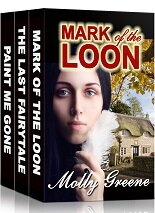


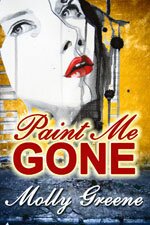

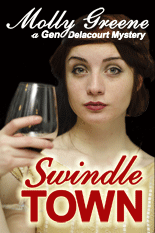

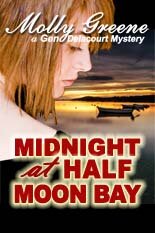
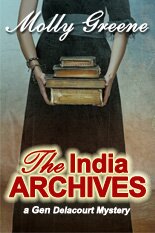

Comments are closed.